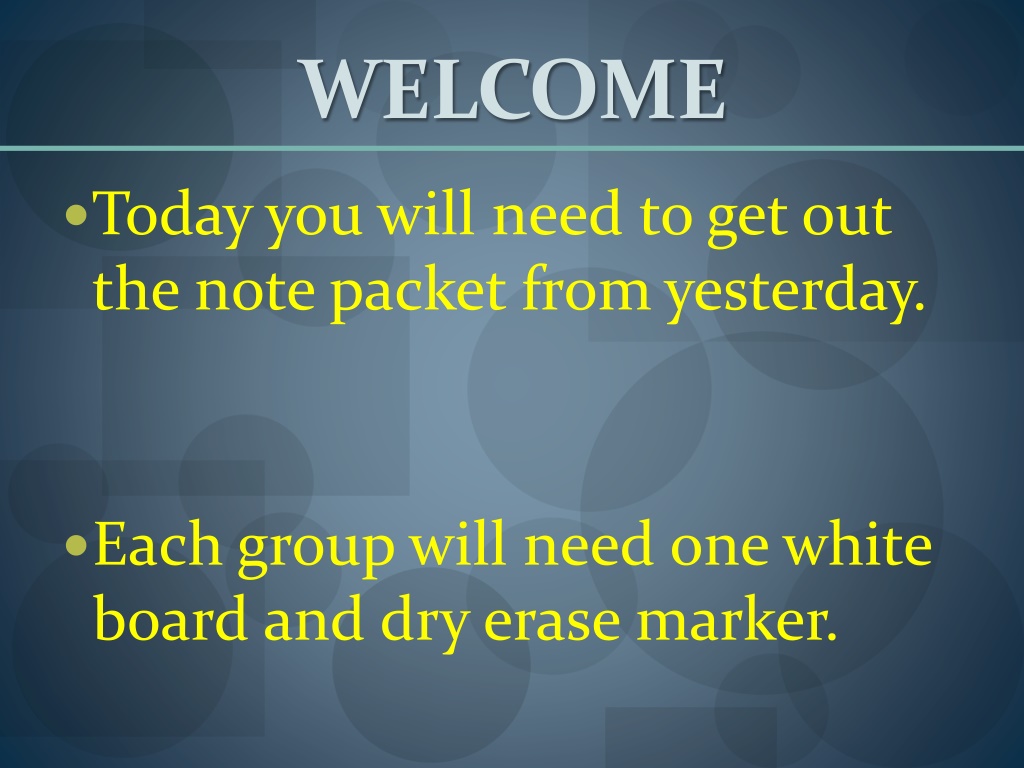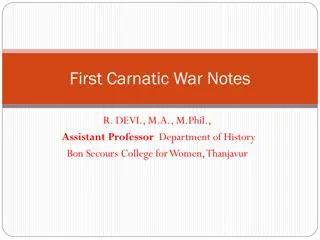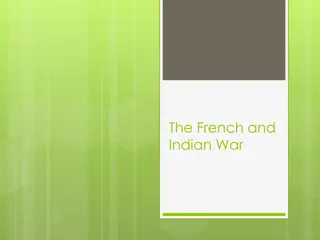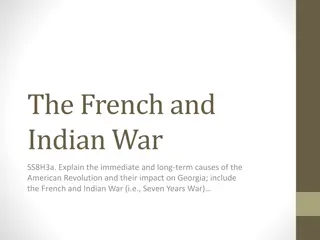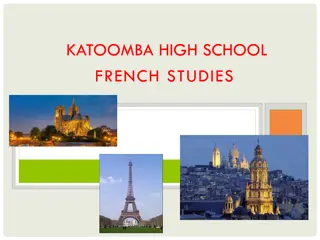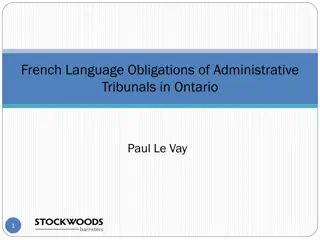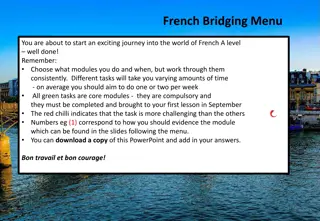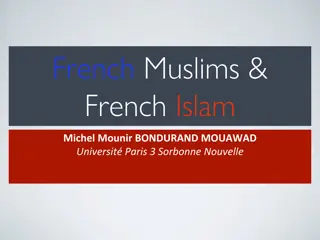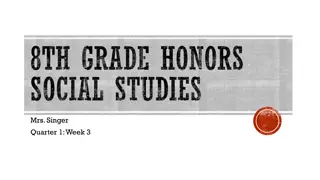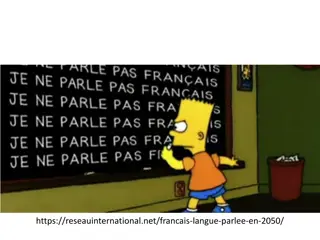The French and Indian War: A Historical Overview
The French and Indian War, a pivotal conflict in North America during the 18th century, saw the British and French vying for control of the continent. From initial French successes to British resurgence under William Pitt, the war culminated in the fall of New France and the Treaty of Paris of 1763, redrawing territorial boundaries. Learn about key events, battles, and outcomes of this significant conflict.
Download Presentation

Please find below an Image/Link to download the presentation.
The content on the website is provided AS IS for your information and personal use only. It may not be sold, licensed, or shared on other websites without obtaining consent from the author. Download presentation by click this link. If you encounter any issues during the download, it is possible that the publisher has removed the file from their server.
E N D
Presentation Transcript
WELCOME Today you will need to get out the note packet from yesterday. Each group will need one white board and dry erase marker.
THE FRENCH AND INDIAN WAR
The British Take Action Early on-French appeared to be winning control of the American land: Built forts throughout the Great Lakes region & the Ohio River valley Strong alliances with the Native Americans
Britain Declares War 1754-Great Britain sent Gen. Edward Braddock to be commander in chief of British forces in America & drive the French out Unsuccessful in the battle at Fort Duquesne; lost nearly 1,000 soldiers & was killed Defeat spurred Britain to declare war on France Seven Years War began in 1756
Pitt and Success Early years-British were not successful William Pitt, prime minister of Britain, came to power; things changed: Britain paid for war supplies; put them into debt British recaptured the fort at Louisbourg & captured Fort Frontenac & Fort Duquesne
The Fall of New France Continued British victories led to the downfall of the French as a power in North America: Surprised & defeated the French army at the Battle of Quebec Capital of New France & a place that was thought to be impossible to attack.
Treaty of Paris of 1763 Treaty of Paris of 1763 ended the war: France kept the West Indies but gave Canada & its lands east of the Mississippi River to Great Britain Great Britain gained Florida from Spain Spain received lands west of the Mississippi River (the Louisiana Territory) & the port of New Orleans North America-divided between Britain & Spain with the Mississippi River as the boundary
Trouble on the Frontier British victory left the Native Americans without their ally & main trading partner Raised prices of goods Did not pay the Native Americans for their land Began new settlements in western Pennsylvania
Pontiacs Rebellion Pontiac was a chief of an Ottawa village near Detroit Put together an alliance of Native Americans Attacked the British forts & led a series of raids called Pontiac s War along the PA & VA frontiers War ended when Pontiac heard that the French signed the Treaty of Paris
Proclamation of 1763 Was to prevent more fighting & westward expansion King George III declared the Appalachian Mts as the temporary boundary for the colonies Created more conflicts between Britain & the colonies People owned & invested in land west of the mts
The Proclamation Linewas the term for the area the colonists were not allowed to move, which was west of the Appalachian Mountains.
What do you think????? What do think will happen in the colonies now that King George had issued the Proclamation of 1763?
The Proclamation of 1763 Students: Draw this on back of notes The Indians agree to stop attacking the colonies. The Indians continue to attack the colonies. The colonists will remain on the coast where the king can use the navy to keep them under control. Parliament passes the Proclamation of 1763 The king is concerned that as colonists move inland, he will have less control over their actions. Makes the Colonist angry at King George III! Put in your frame of Reference: The king believes the colonists will be happy about the Proclamation, because it will stop the attacks from the Indians.
Question 1 Notes face down! What was the name of the King of England at the time of the Proclamation Line in 1763? A. King James B. King George III C. King Henry D. King James II
Answer 1 B. King George III
Question 2 Who do you think most likely the Proclamation line causes friction between? A. The colonists and the British B. The British and the French C. The French and the Native Americans D. The colonists and the French
Answer 2 A. The colonists and the British
Question 3 Why are the colonists mad they can t cross the Appalachian Mountains? A. They wanted to move their for religious freedom B. They wanted to live with the natives and learn to hunt with them. C. They fought for it during the 7 Years War and wanted to settle there
Answer 3 C. They fought for it during the 7 Years War and wanted to settle there
Question 4 Why do you think King George III felt he needed the proclamation line?
